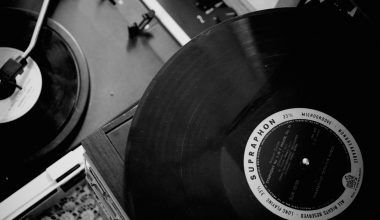If you’re a music creator, producer, or someone involved in the music industry, you’ve probably heard of the term “ISRC number.” But what exactly is it, and why is it important for your music? In this blog, we’ll dive deep into the world of ISRC numbers, breaking down their significance and how they can make a difference in your musical journey.
The ISRC, or International Standard Recording Code, is a unique identifier assigned to individual music recordings. Think of it as a fingerprint for your song or track. This code helps to track and manage the performance and distribution of music across different platforms. For artists and record labels, the ISRC number is essential for royalty collection, copyright management, and ensuring your music is recognized worldwide.
How Does an ISRC Number Work?
An ISRC number is made up of 12 characters, and each part of the code has a specific meaning. Let’s break it down:
- Country Code: The first two letters represent the country where the ISRC is registered. For example, “US” stands for the United States.
- Registrant Code: The next three characters identify the organization or individual who registered the ISRC.
- Year of Reference: These two digits indicate the year the ISRC was assigned.
- Designation Code: The final five digits are unique to each recording, ensuring no two songs share the same ISRC.
For example, an ISRC might look like this: US-XYZ-23-00001. Each section tells a part of the story about the recording.
Why Do You Need an ISRC Number?
You might wonder if having an ISRC number is necessary. The short answer? Yes! Here’s why:
- Tracking Royalties: When your song is played on streaming platforms, radio stations, or used in a commercial, the ISRC ensures you get paid. It’s the key to collecting royalties accurately.
- Global Recognition: With an ISRC, your music can be easily tracked across the globe. This makes it easier to manage international releases.
- Copyright Protection: The ISRC number acts as proof of ownership for your music. This helps in protecting your rights if any disputes arise.
- Data Management: Music distributors, digital platforms, and industry organizations use ISRCs to keep track of millions of songs. Without one, your music could get lost in the system.
How to Get an ISRC Number for Your Music
Obtaining an ISRC number is a straightforward process. Here are the steps:
- Choose a Registrant: In many countries, you can apply for an ISRC directly through a local agency. In the US, for example, the RIAA (Recording Industry Association of America) is the official ISRC agency.
- Apply Online: Most agencies have online portals where you can register for an ISRC. You’ll need to provide basic details about yourself and your music.
- Assign ISRCs to Your Tracks: Once you’ve received your registrant code, you can start assigning ISRC numbers to your recordings. Make sure to follow the correct format.
- Keep Records: Maintain a detailed record of your ISRCs and the tracks they correspond to. This will save you time and hassle in the future.
Can You Have Multiple ISRC Numbers?
Yes, but it’s essential to understand when to use a new ISRC. For instance:
- If you create a remix or an alternate version of your song, it should have a new ISRC.
- If the song is re-released with changes to its structure, a new ISRC is required.
- However, minor edits like correcting metadata don’t require a new ISRC.
Keeping track of your ISRCs is vital to avoid confusion and ensure proper royalty payments.
The Role of ISRC Numbers in Digital Distribution
In today’s digital age, ISRC numbers play a crucial role in the distribution of music. When you upload your music to platforms like Spotify, Apple Music, or YouTube, the ISRC is used to identify your track. This identification helps with:
- Streaming Analytics: Platforms use the ISRC to gather data on how many times your song is streamed, skipped, or added to playlists.
- Royalty Calculation: The ISRC ensures that royalties are calculated accurately and sent to the right person.
- Avoiding Duplicate Entries: Without an ISRC, your music might be listed multiple times under different entries, which can confuse listeners and dilute your brand.
Do Independent Artists Need an ISRC Number?
Absolutely! Whether you’re signed to a major label or releasing music independently, an ISRC number is equally important. For independent artists, the ISRC is a powerful tool for maintaining control over your music and ensuring you get paid for your work.
Many digital distributors, like CD Baby, TuneCore, and DistroKid, include ISRC assignment as part of their services. If you’re using one of these platforms, check if they’ll assign ISRCs for your tracks automatically. If not, you can always request one yourself.
Common Misconceptions About ISRC Numbers
- ISRC Numbers Are Not Barcodes: While both are used for identification, ISRCs and barcodes serve different purposes. The barcode is for the product (e.g., an album), while the ISRC is for individual recordings.
- You Don’t Need a New ISRC for Every Platform: Once a track has an ISRC, it stays the same across all platforms.
- ISRC Numbers Are Not Just for Songs: They’re also used for music videos, podcasts, and other types of audio-visual content.
The Future of ISRC Numbers
As technology continues to evolve, the role of ISRC numbers is becoming even more critical. With the rise of AI-generated music and the increasing complexity of royalty tracking, having a robust identification system is more important than ever. ISRCs are also being integrated into blockchain technology to create transparent and tamper-proof records of music ownership.
Final Thoughts
The ISRC number might seem like a small detail in the grand scheme of making music, but it’s a detail that can have a significant impact on your career. From ensuring you get paid to protecting your rights and managing your music’s journey across platforms, the ISRC is an essential tool for every music creator.
So, if you haven’t already, take the time to get ISRCs for your recordings. It’s a simple step that can save you a lot of trouble down the line and give your music the recognition it deserves.
For further reading, explore these related articles:
- Circles Post Malone Lyrics – A Song About Love, Loss, and Life
- Billie Eilish’s Big Moment at the Oscars 2022: A Night to Remember
For additional resources on music marketing and distribution, visit DMT Records Pvt. Ltd..






